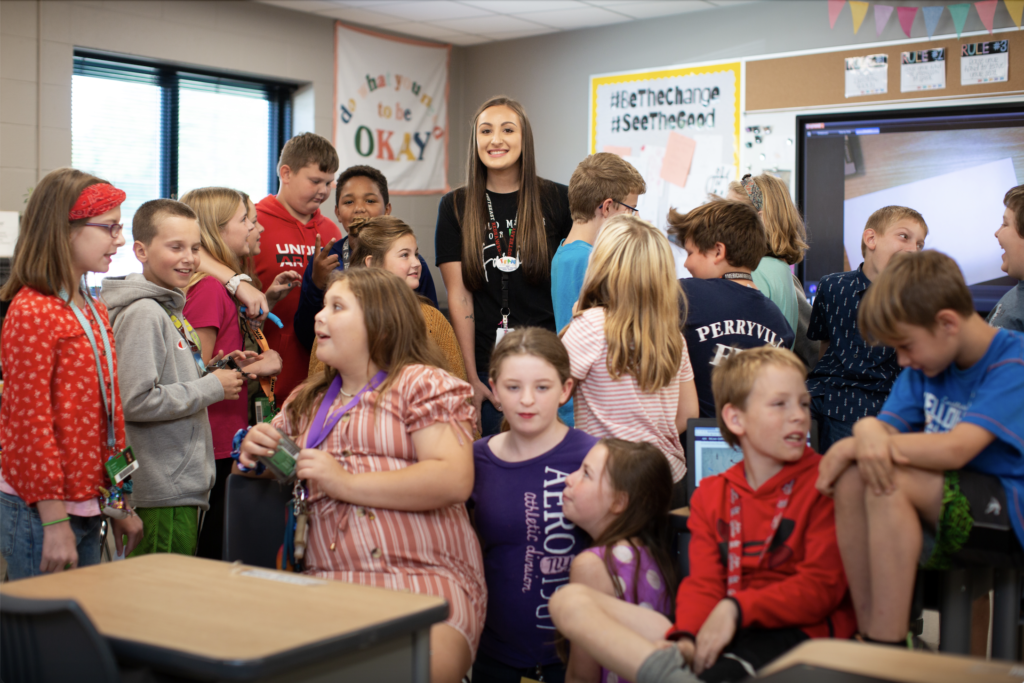To mother is to hold space for another to exist. It’s what our very bodies tell us in the hollow of our wombs. The physicality of this attribute carries over to the emotional needs of others, too; there are all kinds of ways to make a place for another’s mind, heart, body, spirit. Each time we feed, nourish. Each time we receive another to listen. Each time we give attention, do what we said and meant, say, here, I’ll scoot over, let you sit.
One of the greatest things we can do in this life, I believe, is create space for others. Spaces where people can dwell, belong, become. Spaces where people feel safe to discover who they are and grow in confidence to fully inhabit themselves. Spaces where people dare to risk sharing the fruits of their questions, efforts and deepest longings, because these are the things that bear hope in a dying world. If we can help people come alive to manifest — not who we want them to be but — who they are, we will have done something noble and worthy.
We mother who we are, and we are each individually gifted. Let us not think the way mothering manifests itself through our self must look like the way it manifests itself through the woman sitting next to us. After all, as someone needs who she uniquely is, someone needs who you specifically are.
And so, let us mother. Let us make space for the world to develop as it could. Let us clear a path for the people around us to step into opportunity. Let us create for others possibility.
Here, Alyse Bollman shows us how she does, so we might, too.
In Alyse Bollman’s fifth grade class at Perryville Elementary School in Perryville, Mo., classmates call each other “friends.”
Bollman herself uses the word in place of “students,” to cultivate a warm environment in which students feel comfortable and welcome. In her classroom, she focuses on social-emotional learning, helping students understand their emotions and make space for each other to feel included, no matter their needs. She calls her class a family and sometimes jokes with them that people don’t get to pick their families, so they are stuck there with her.
“More than ever, all teachers have so many roles to play,” Bollman says. “And of course, I care about academics, but academics has honestly kind of taken a middle-to-last lot recently. We’ve had to do a lot of social-emotional [work] in here and really build up self-esteem again and all of that good stuff.”
Bollman, a first-year teacher, says she has always known she wanted to be a teacher, despite people telling her she didn’t want to be in the profession because she wouldn’t make very much money. She says because of this, she changed career paths for a bit, but always came back to teaching; now, she has plans to earn her master’s degree in special education. She calls her classroom her “happy place.”
In her classroom, Bollman says the question “Are you OK?” and the motto “Do what you need to be OK” are key. She makes it a point to help her students self-reflect on their emotional states and know the steps to take when something is bothering them; she encourages them to check in on themselves and each other. If they don’t feel comfortable talking with her about how they’re feeling, they can write her a letter or talk with the counselor. If someone is sleeping at their desk, she lets them sleep and checks in with them afterward. She talks with her students about equity, helping them realize some people need different resources such as moving around the classroom or using fidgets to be able to learn equally.
Bollman avoids labeling behavior as “good” or “bad” and says she recognizes “behavior is usually an underlying symptom of something else;” she enjoys talking with students to understand why a certain behavior is manifesting itself. She attends her students’ sporting events outside of school.
“My philosophy is, meet them where they’re at,” Bollman says. “Wherever they need me, that’s where I try to be. … I tell them, I’m like, you guys are like my 25 kids. ‘Cause whenever something’s sad, we cry, and if it’s happy, sometimes we cry, too, and there’s lots of hugs.”
Bollman says her mentor teacher while she was student teaching taught her so much about social-emotional learning and has been “key” in her teaching journey. Bollman says she also “spills out” any wisdom she can “get out of” her mother, too. She says her sixth grade teacher — the person who inspired her love of reading — is where her “spark” for teaching came from; that is the year she decided to become a teacher.
Grace is another focus of Bollman’s classroom. As someone who used to be a perfectionist, she says grace is something she not only teaches, but something she learns from her students, as well.
“Give grace,” she says of what she wants others to know about making space for others. “Because they are small humans, and we all make mistakes. And I think they have a lot on their plates already, so instead of adding to their plate that’s already so full, to give them grace and help them to take things off that plate while they’re still learning. And I just think grace goes a long way. And always try to meet them where they’re at, and that’s so beneficial to them. Because I think they know what they need to do, and sometimes they just need encouragement on how to do that.”
Seeing the good in every situation is Bollman’s life motto, and she says when something is challenging, she relies on her faith in God to understand what God is trying to tell her through it. All of it, she says, is worth it.
“Be a teacher!” Bollman says. “If you’re wanting to be a teacher, be a teacher. We need so many more teachers, and it’s so hard. It’s difficult right now, but it’s so worth seeing [the students] here at school. And with the teacher shortage, I hope if people are considering teaching, they will stick with it. Of course, all jobs have hard days; you have to choose your hard. So, if it’s something you love doing, there’s way more good days than there are bad days, and it’s so worth it to teach the little minds that teach me more than I teach them.”


